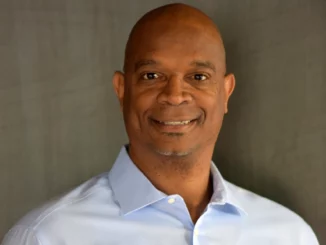
BY Lisa M. Gomez Assistant Secretary
In 2008, Congress passed a law requiring health plans and insurance companies to treat individuals with mental health conditions and substance use disorders fairly. The law — called the Mental Health Parity and Addiction Equity Act, or MHPAEA — doesn’t require plans to offer any specific mental health or substance use disorder benefits or even to make benefit packages more generous. It simply instructs them to not place extra hurdles in patients’ way to getting mental health and substance use disorder benefits covered than those in place for medical treatment.
Fifteen years later, despite the law’s clear promise of parity between mental health and medical/surgical benefits, people living with treatable mental health conditions and substance use disorders commonly face more restrictive limitations on their access to promised benefits than people seeking medical/surgical benefits. While plans and insurance companies have made great strides in reducing disparities in financial requirements, such as copays, the same cannot be said for other limitations, like prior authorization.
If you or your loved ones have ever lived with a mental health condition or wrestled with substance use disorders, you know how hard it can be to get through the day sometimes, without added obstacles to getting needed treatment. Yet, people in serious need of help for these issues still commonly – and illegally – face more restrictive limitations, such as, tougher pre- authorization requirements, more stringent fail-first policies, the use of special gatekeepers for benefits, categorical treatment limitations, and other discriminatory restrictions. This is all made worse by the fact that individuals often face greater difficulties finding mental health and substance use disorder treatment providers in their network.
These unlawful limitations require people living with mental health conditions or substance use disorders to run faster, jump higher and clear more hurdles just to get the benefits their plan promises. This is wrong, its illegal and it must stop.

I’ve been there myself, and I’ve seen firsthand how difficult it can be for a person in this situation, as well as their families and friends. I’ve experienced the pain of losing friends and family members to suicide and overdose. I also know that people with mental health conditions and substance use disorders can manage their conditions and lead meaningful, fulfilling lives if they can access the care they need in the same way they can for their medical conditions.
My agency, the Employee Benefits Security Administration is a U.S. Department of Labor agency that protects the rights and interests of workers and their families in private employment-based benefit plans, including their rights to mental health and substance use disorder benefit parity. The overwhelming majority of people under age 65 in the United States – approximately 127 million people – get their benefits from the health plans we regulate.
We are determined to make sure these workers and beneficiaries get their due. For example, EBSA’s enforcement program has required plans to address discriminatory practices by eliminating blanket pre-authorization requirements for mental health benefits; ensuring comparable coverage of nutrition counseling for people with eating disorders, applied behavioral analysis (ABA) therapy to treat autism, and medication-assisted treatment for opioid use
disorders; and eliminating special gatekeepers for mental health and substance use disorder treatment.
But we have a long way to go. Full compliance with the mental health parity law remains a goal, not a reality. Mental health conditions and substance use disorders broadly affect children and adults from all demographic groups in the U.S. A 2021 Centers for Disease Control and Prevention report says the percentage of adults with symptoms of an anxiety or depressive disorder had increased to 41.5 percent as of February 2021. The CDC found that during the 12- month period ending in July 2022, overdose deaths increased to an estimated 102,429 deaths. In addition, research from Mental Health America reveals that millions of children ages 12 to 17 report experiencing at least one major depressive episode or severe major depression. Plans and insurance companies can play a key role in addressing these terrible facts by merely complying with the law.
If you think you or your loved ones are facing especially high hurdles just to get needed mental health or substance use disorder benefits, you can call an EBSA benefits advisor for free at 866-444-3272 or make an online request for assistance at askebsa.dol.gov. We know that too many people in the U.S. deal with these issues every day. As we continue to work on the larger problems within this system, EBSA is here to help you now. Together we can move toward a healthier future for people living with mental health conditions and substance use disorders.
Lisa M. Gomez Assistant Secretary Employee Benefits Security Administration






